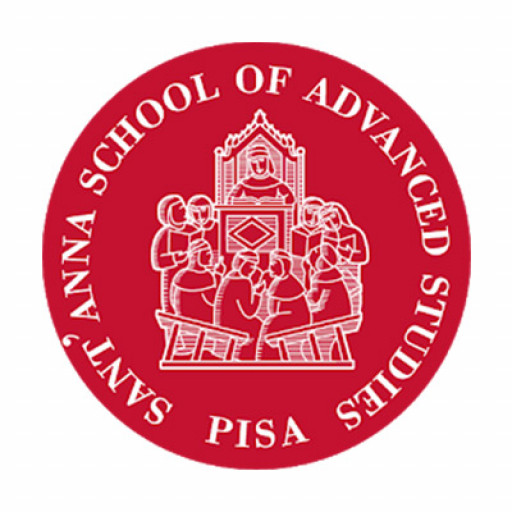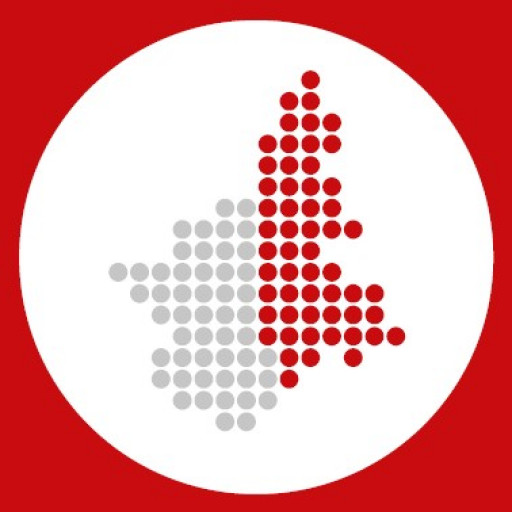Photos of university / #unipotsdam
The Bachelor of Science in Biochemistry and Molecular Biology at the University of Potsdam offers students a comprehensive education in the fundamental principles of biological chemistry and molecular sciences. This interdisciplinary program is designed to provide a solid foundation in chemical and biological methods, equipping students with the skills necessary to understand complex biological processes at the molecular level. Throughout the course of study, students will explore key topics such as biochemistry, molecular biology, genetics, cell biology, and structural biology, gaining a deep understanding of how biological molecules interact and function within living organisms.
The program emphasizes practical laboratory experience, where students develop essential skills in experimental design, data analysis, and scientific communication. Such experience prepares graduates for careers in research, biotechnology, pharmaceuticals, environmental sciences, and healthcare industries. The curriculum includes both theoretical coursework and practical lab sessions, fostering analytical thinking and problem-solving abilities. Students also have opportunities to engage in independent research projects, often collaborating with faculty on current scientific investigations, which enhances their research competence and prepares them for future academic or professional pursuits.
The program also encourages an interdisciplinary approach, integrating concepts from chemistry, biology, and physics to provide a holistic understanding of biological systems. Students learn to employ modern techniques such as molecular cloning, spectroscopic methods, bioinformatics, and structural analysis. The international orientation of the university and its active research environment offer students exposure to global scientific developments and opportunities for international exchange.
Graduates of this program will be well-prepared for advanced studies or entry into industry positions where they can contribute to innovations in health, medicine, and environmental protection. The university’s supportive academic community ensures personalized guidance throughout the program, fostering both scientific excellence and personal development. With a curriculum designed to adapt to rapid scientific advances, the Bachelor of Science in Biochemistry and Molecular Biology from the University of Potsdam aims to cultivate highly qualified scientists capable of addressing today’s complex biological challenges.
Educational organisation
The course programme includes two compulsory core modules on applied bioinformatics and on the state of the art of research in biochemistry and molecular biology. In addition, the students complete three orientation modules. Each orientation module consists of a lecture, literature seminar, and six-week research project. The research project is to be chosen from a range of different subjects. The course programme contains a further five to six elective modules, typically consisting of a lecture, literature seminar, and two-week research project, for a total of 40 ECTS credits. An advanced research practical training to prepare the Master's thesis and the six-month Master's thesis complete the course. The orientation and elective modules can be chosen from a wide range of topics, aligned with the research topics of the participating groups.Forms of assessment
Oral and written examsWrite-ups about research projects
Master's thesis
Course objectives
Students will gain an overview of the current status of research in the fields of biochemistry, molecular biology, genetics, genomics, systems biology, and biotechnology. They will also gain a thorough understanding of the essential concepts in these fields, and expand their practical skills using the latest technologies. The students will be able to formulate scientific problems, select appropriate methods and techniques, and thus successfully work on complex projects and publish the results.The skills acquired in the Master's programme qualify the students for work in research, teaching, and development. For example, graduates can work at universities and other scientific institutions, as well as biotech or biomedical companies, and also in administration and management.
Language requirements
Applicants must provide proof of their German and English skills.German: Goethe-Zertifikat A2 or equivalent
English: UNIcert at least level II, TOEFL 75 (Internet-based test), IELTS at least 5.0 in each area; English-language Bachelor's degree; or equivalent
Academic requirements
Applicants are required to hold a Bachelor's degree in the life sciences (e.g., BSc in biology, biochemistry, bioscience, biotechnology, biomedicine, bioinformatics). In particular, applicants need to document knowledge of molecular biology and biochemistry amounting to 60 ECTS credit points obtained during their Bachelor's degree.Enrolment fees
Up to 265 EUR; the fee includes a so-called "Semester-Ticket" for public transport.Costs of living
Approx. 800 EUR per month to cover personal expensesJob opportunities
Job opportunities for students alongside their studies are numerous. Depending on personal and professional skills, students can find jobs in the service sector (e.g., in restaurants, cinemas, museums, theatres, etc.) or work as student assistants at the university or in the numerous non-university research institutions located in Potsdam. Furthermore, lots of tourist attractions (castles and museums) in town offer jobs for international students. More job opportunities for students of the University of Potsdam are offered by the "Studentenwerk Potsdam" (see http://www.studentenwerk-potsdam.de/jobvermittlung.html).As the German capital Berlin is located just around the corner, students can also find jobs there.
Arrival support
Potsdam is conveniently located near the Berlin airports and international train stations. You can reach Potsdam easily via the local train service (S-Bahn and Regionalbahn).The winter semester at the University of Potsdam starts on 1 October and the summer semester starts on 1 April. Detailed information about your exact arrival day, meeting point, and how to reach your meeting point is provided by the programme coordinators.
The University of Potsdam provides numerous preparatory programmes that start prior to or at the beginning of the semester. More information on specific courses for international students can be found online: http://www.uni-potsdam.de/en/zessko/the-introductory-study-phase/index-eng.html. Preparatory courses cover study techniques or the German language, including a preparation course for the DSH test. The preparatory courses aim to support international students right from the start and thus facilitate a successful study experience.
Moreover, international students can participate in the Buddy Programme. This programme offers a support network in which students from the university assist our newly arrived international students. The support network especially offers support at the start of the programme, but the support often continues until the end of the semester. The international and German students involved in the programme exchange language and cultural skills and thus quickly get to know many fellow students and the new academic environment.
Services and support for international students
The International Office provides advice to international students on all administrative issues as well as on legal and financial questions. All programmes have coordinators who should be contacted with any questions regarding the study programme, application, and details of the specific programme.The University of Potsdam offers various programmes and courses to support international students (Buddy Programme, Tandem Programme, preparatory courses). The Buddy Programme offers a support network in which students of the university assist newly arrived students before and upon their arrival in Potsdam and at the university.
Accommodation
Depending on the programme, accommodation is either arranged in advance or the International Office will help you find suitable accommodation. Student accommodation is managed by the Studentenwerk Potsdam. On their website (see below), the available rooms can be viewed and further information about the application process can be found.See: http://www.studentenwerk-potsdam.de/en/wohnen.html








